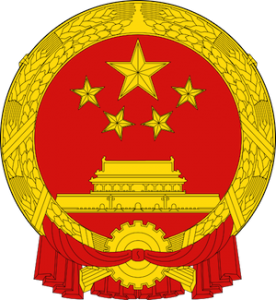Location
For centuries China stood as a leading civilization, outpacing the rest of the world in the arts and sciences, but in the 19th and early 20th centuries, the country was beset by civil unrest, major famines, military defeats, and foreign occupation. After World War II, the communists under MAO Zedong established an autocratic socialist system that, while ensuring China's sovereignty, imposed strict controls over everyday life and cost the lives of tens of millions of people. After 1978, MAO's successor DENG Xiaoping and other leaders focused on market-oriented economic development and by 2000 output had quadrupled. For much of the population, living standards have improved dramatically and the room for personal choice has expanded, yet political controls remain tight. Since the early 1990s, China has increased its global outreach and participation in international organizations.
China is a communist state.
Source: CIA World Factbook
Members:
Resources
Displaying 6 - 10 of 70Measures for Land and Resources Administrative Penalties.
These Measures are enacted in accordance with the Law of the People's Republic of China on Administrative Penalty, the Land Administration Law of the People's Republic of China, the Mineral Resources Law of the People's Republic of China, for purposes of regulating the imposition of land and resources administrative penalties, guaranteeing and supervising that the competent departments in land and resources legally perform their duties, and protecting the lawful rights and interests of natural persons, legal persons, or other organizations.
Regulations of Yanbian Korean Autonomous Prefecture on promoting professional farm development.
These Regulations are enacted in order to develop professional farms, promote land circulation, safeguard the legitimate interests of farmers and professional farms, and accelerate the process of urbanization.
Measures of the Xinjiang Uygur Autonomous Region for implementation of the Law of the People's Republic of China on Grassland.
These Measures are formulated to implement the Grassland Law of the People’s Republic of China in the Tibet Autonomous Region.
Regulations of the Xinjiang Uygur Autonomous Region on state land and resources inspection and supervision.
These Measures, consisting of 27 Articles, are formulated in order to strengthen the management of land and resources, and standardize the supervision and inspection work.The Measures provide for the responsibilities of the competent land and resources authorities at various levels on supervising and inspecting violations. The land and resources administrative departments at or above county level shall establish a dynamic inspection system, timely detection and investigate and deal with violations of land and resources.
Administrative measures of Liaoning province for land planning.
The purpose of these Measures is to strengthen the management of land planning, effectively protect and rationally develop and utilize land resources, promote the coordinated development of economy, society and population, resources and environment. The Measures consist of 32 Articles.The provincial government shall organize relevant departments to develop comprehensive land planning, special land planning and specific regional land planning.


